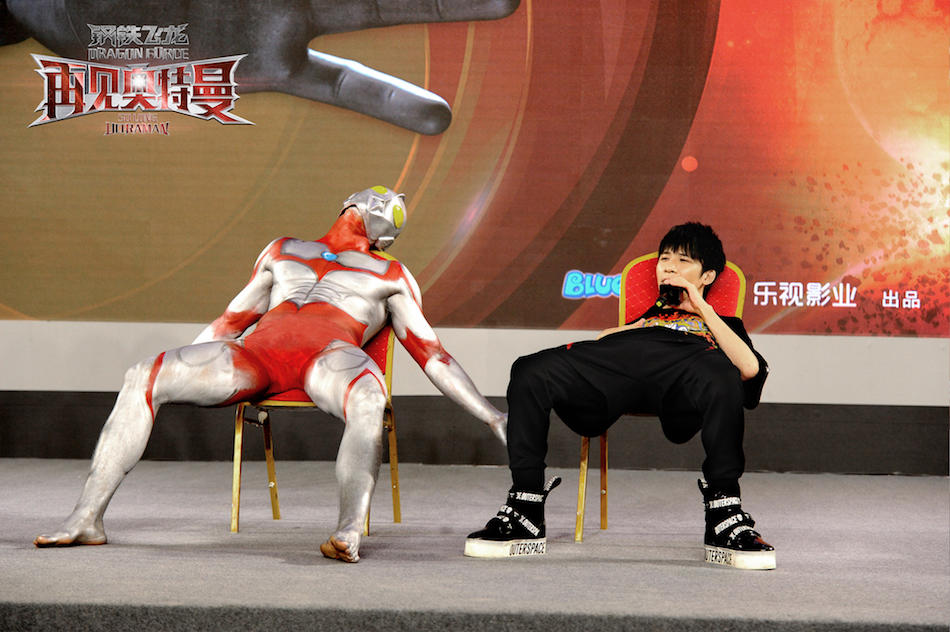Guangzhou-based BlueArc Animation Studios is the latest third party to be caught up in a long-running copyright dispute between two Japanese companies.

Photo: Official press photo distributed by the Chinese film company.
A Chinese film company has made a film about one of Japan’s most iconic superheroes without permission, according to its Japanese copyright owner.
In a statement issued Wednesday, Tsuburaya Productions Co. blasted Guangzhou-based BlueArc Animation Studios Co. for using its ‘Ultraman’ superhero in a new film without its authorization.
The CG film, called Dragon Force: So Long Ultraman, was unveiled at a press conference in Beijing in early June. Helming the production is Wang Wei, the creator of BlueArc Animation, and Wowkie Zhang will be the main voice actor.
Le Vision Pictures, a subsidiary of embattled internet conglomerate LeEco, is also clearly listed on promotional materials for the film as another producer alongside BlueArc Animation.
“Our company is not at all connected [to this],” a Tsuburaya Productions representative is quoted as saying by AV Watch. “The motion picture in question was made without our consent or supervision.”
Tsuburaya stated that it will take “firm action including legal measures” against BlueArc Animation Studios and other parties related to the making of the movie which they insist was “made without [their] permission or supervision.”
On Friday, BlueArc Animation issued an official response claiming it is making the film with the authorization of UM Corporation (UMC) which it says is the rightful rights-holder for the Ultraman series for use outside Japan.
In 2015, UMC filed a complaint in California federal court accusing Tsuburaya Productions of posting TV episodes featuring Ultraman on Youtube, which UMC said violated its licensing deal with Tsuburaya for the rights to the character.
The explanation has failed to convince many in China as scores of Chinese internet users took to social media to slam the film as a “crappy domestic rip-off.”







